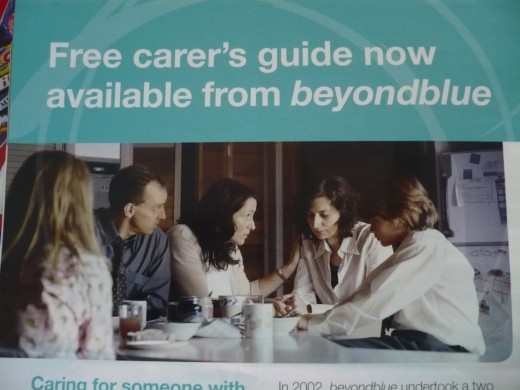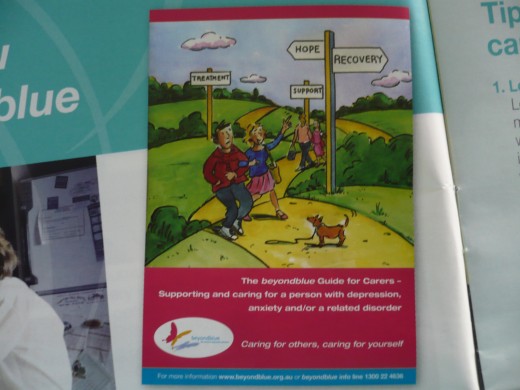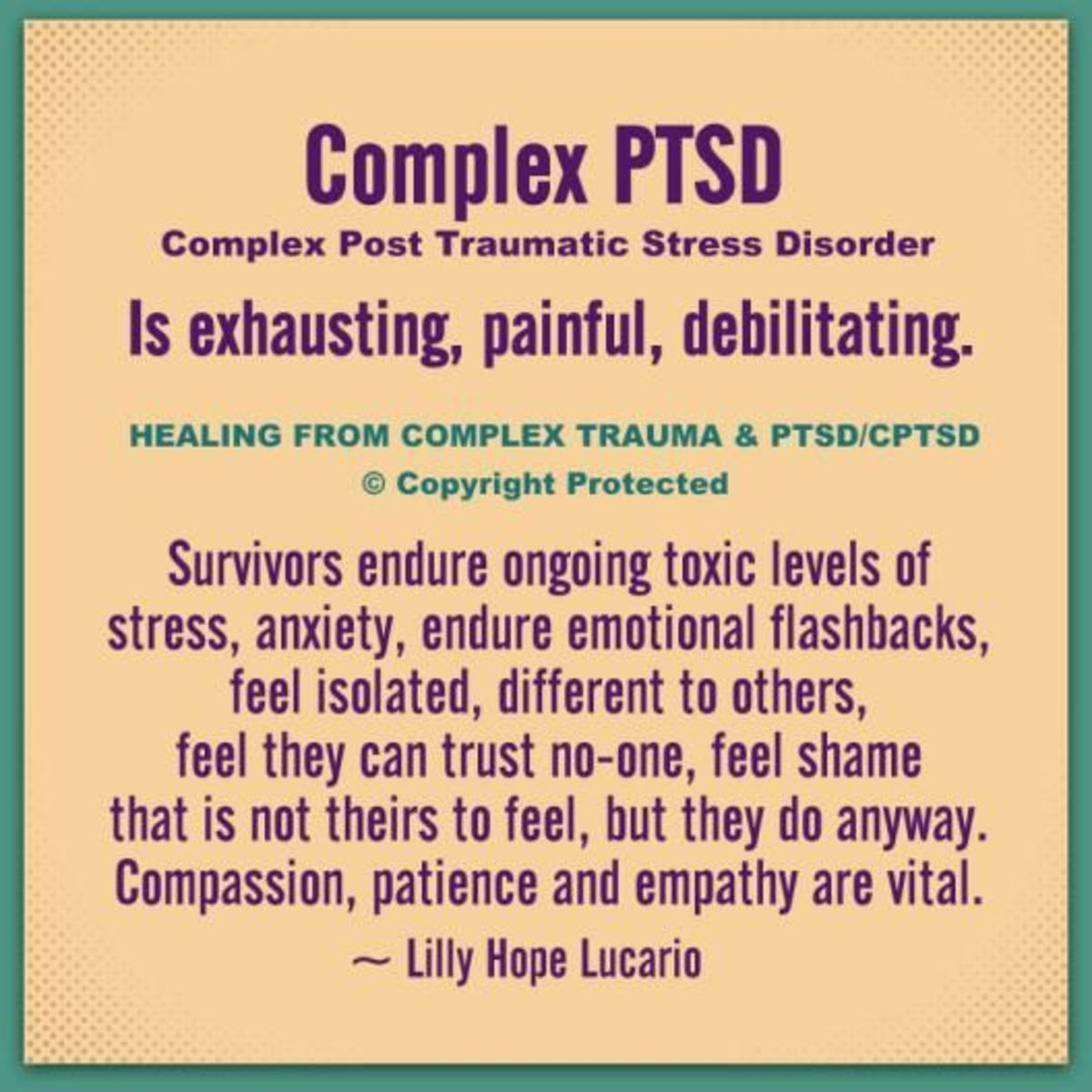'BEYONDBLUE' WITH NEW GUIDE FOR CARERS OF MENTALLY ILL

CARERS OF A PATIENT WITH A MENTAL ILLNESS
Speaking from personal experience, as a person who receives both professional and spousal care on a regular basis, I can honestly say that it is not easy to find after looking after all your daily needs every day , to one day be totally dependent on someone else to help you with your daily needs such as showering, helping to dress, feeding, etc. It is not easy at any time to ask for help, but even harder when you have to completely rely on some other person to assist you with all these daily requirements.
However, how many of us ever stop to consider the person who is responsible for doing all of these things for us, OUR CARERS, YES THEY ALSO HAVE TO BE CONSIDERED. Caring for someone can be a very rewarding and enjoyable position, but there is also a down side to it as well, especially caring for someone with a MENTAL ILLNESS.I have seen the effect that this has had on my husband, who is part of my caring team. It can be a very overwhelming, confusing and very stressful task, and sometimes, he just has to take time out because it can all get too much for him. However, add to that equation my mood swings with occasional outbursts for no obvious reason, at least none that he can see, feeling down one minute and the next going in the opposite direction, and then before you realise, it can start to really get on top of him. Very soon he becomes sullen and moody as well as me and it can become quite unpleasant for both of us.
HELP NOW FROM BEYONDBLUE: THE NATIONAL DEPRESSION INIATIVE HAS RELEASED NEW GUIDE CALLED 'CARING FOR OTHERS, CARING FOR YOURSELF - This booklet is designed to help carers best look after their loved ones as well as themselves.
Caring for someone with a MENTAL ILLNESS, can be a lonely, overwhelming, confusing and stressful task - but support is now available in the form of a new book, ' BEYONDBLUE'.
Yes, from what have read, this new beaut guide, which is the result of years of research by this team , has looked very heavily into the experiences that the carers of patients with mental illness, such as depression and the like. They have compiled this booklet based on real-life stories and advice from carers who look after patients such as myself, who took part in a series of focus groups. Carers and patients were asked to fill out a questionnaire regarding the effects of looking after a patient with these kind of needs and requirements, can have on the carers themselves personally and any other family members that also have to be considered, because when you think about it , this kind of illness affects everyone in the family. Therefore, everyone's opinion matters in these situations, even the dog's, if you have one. He can also be a victim in a fit of rage, with a bad mood swing, if he gets in the way. Just a bit of humour thrown in here. However, seriously speaking though, all family members have to have a say in these questionnaires so that they could get a good selection of ideas of where the problems are.
The booklet itself is divided into two sections: Caring for Others and Caring for Yourself.
The Beyondblue Team say that Carers, are themselves at risk of developing depression and also anxiety related problems, because sometimes they become neglectful of their own health and wellbeing. I know that my husband Richard could be taking better care of himself. However, when I try to tell him that, I feel like I am hitting my head against a brick wall because he just doesn't take any notice. In fact, if I bring up the subject of anything remotely connected to "looking after himself more, it almost becomes an "all out war" between us. Between you and me, it is better to drop the subject because it can become quite unpleasant very quickly, and I can't handle stress very well with my illness. I won't stop trying to get him to listen though and neither should anyone who is the recipient of care for a mental illness by someone.
Unfortunately, In their research , they have discovered that, one in every three carers, who are looking after a person with a mental illness, will experience severe depression, and it is very likey that being a carer will greatly contribute to this diagnosis. Also within this guide, there are quotes that have been received the the carers of mentally ill people, which gives an insight into the many roles that these carers play. This includes their thoughts, feelings and their reactions to various situations they have found themselves in with those that they have been looking after. It is meant as a means of assisting the carers with valuable and helpful information regarding their care with people suffering from Depression, Anxiety or a related mental disorder.
PROBLEMS FACED BY CARERS
- In many cases, carers were found to be totally unprepared for the impact that caring for a mentall ill person would have on them and their families.
- Most of them had difficulty trying to cope with a different kind of routine and all of the personality changes that had occurred in the person that they had to look after. I will say here also, that we had this problem, and Richard did have a lot of problems,and still does with my constant mood changes.
- Carers will often feel very socially isolated because they don't get the proper support due to the inadequate community awareness and understanding where they are living with regard to Depression and other related Mental Disorders.
- Carers often found that they were excluded from the appointments with the Health Professionals, even though they were the only ones that were looking after the recipient and taking a lead role in the treatment process
- Carers often felt that they were walking on eggshells. They said that they often found that their roles were so overwhelming at times, that it impacted on their own relationships with their families and friends.

THESE SOME TIPS TO HELP CARERS OF MENTALLY ILL PEOPLE
In the book it says that it can't be stressed highly enough the importance of carers taking charge and manging their own mental health and also taking time out for themselves, whenever it is possible. "You need to take time out and you need to keep part of your life separate. You need to have a life outside the carer's duties.

TIPS FOR CARERS OF THE MENTALLY ILL:
1.Learn about Depression:
If you are looking after a person suffering from depression or a depressive illness, you are advised in this book, to do as much research as you can on the subject of depression, so that we would understand better why a persons acts in the way they do. It says that this can assist the carer in separating the illness from the person. It will also help them to understand more clearly that the person's mood or behaviour may not be directed at you. For example, when I have a day of moods , as Richard puts it, I take it all out on him. However, I love him dearly and he knows this. Therefore, he doesn't hold me responsible for my outbursts because he know the mood swings and outbursts , even though they go straight to his both just about. In fact, a lot of the time he goes out for a ride on his bicycle, just to avoid me calling out, slamming things down and basically being a real "bitch". He knows that this is not really me, but the illness doing all that stuff, but it still isn't nice for either of us, because for me, I can't control my outbursts, and he practically has to run for cover, metaphorically speaking, of course.
2. TAKE SOME TIME OUT FOR YOURSELF:
You should try to remember to spend some time doing the things that bring you the most enjoyment. Otherwise, you will get depressed as well, and where would we all be if the Carers, are not well enough to even look after themselves.
3. IF YOU ARE NOT SURE ASK QUESTIONS:
When the person you are caring for needs to talk, lend a friendly ear. You should use a very casual and open approach. Ask the person who you are looking after, what it is that is making them feel like the way they do and how can we make you feel better?
When you talk freely and openly with the person, you are letting them know that you support them in what it is that they are going through and that you care and you will always be there for them. I know when I am feeling down, and Richard tells me certain things and talks with me openly, I feel more inclined to open up to him when he uses the gentle approach. Sometimes, he will make me a cup of tea without even asking if I would like one. I think that is so lovely, don't you.?
4. TALK TO OTHER PEOPLE:
If you feel like the walls are closing slowly around you and you are having trouble coping with the situation that you have at the time, it might be helpful to talk to someone about it. However, if you are uncomfortable with the thought of speaking to someone that you know, then try talking to you doctor, or some other mental health professional who you are acquainted with. I often tell Richard when he is feeling a bit like he can't take any more, go and speak to someone. He says, I am fine I don't need to, but everyone needs to talk to someone at some time, otherwise you end up just completely falling apart, and that goes for me to. Many a time I have been in this position, at least I've got a psychiatrist and a social worker, which I see alternately and they give me excellent support and advice.
IN SUMMARY:
One of the things that the Carers of a mentally ill said was that they often felt very Alone and Overwhelmed.They said that they could sometimes feel emotionally drained and taxing. A lot of people said they got the feeling that they were walking on eggshells. Our carers are always putting everyone else before themselves, and because they have to put so many hours into looking after those they are looking after they find it can be all-encompassing, that they put their own mental health issues on the back burner. It only when they start to feel the pressure themselves and are at risk of an anxiety attack or worse, that they finally say "I can't cope with all of this anymore".
BEYONDBLUE CARER'S GUIDE is available
www.beyondblue.org.au(to order a hardcopy or download a PDF)
or you can call the Information Line on 1300 22 4636 (local call cost from a landline)
.








